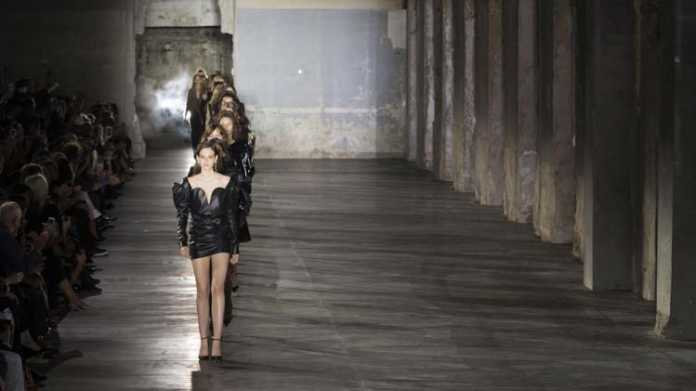Whenever I meet people for the first time, we always get into the conversation of what we study, what we want in a career, our interests. As per usual, I tell them that my interest resides in the fashion industry, and before I can even finish that sentence, many tend to give me the look and ask the rhetorical question: “Oh, fashion?”
It’s always, always asked in an uncertain, mocking, high-pitched voice with judgemental eyes running themselves up and down my body to perhaps, assess how I don’t look like I belong in the industry, and to try to work out the total value of my clothing as if the amount that it adds up to puts a face value on me as a female in the 21st century, interested in fashion as a career, not just a silly and childish superficial hobby.
Normally when one thinks of fashion, one thinks of a glamourous, frivolous and secretive industry that prides itself wholesomely on the glorification of beauty on the exterior. One thinks of glossy Vogue magazines (or the latter), pages full of hallowed texts of the latest trends, where the styles of the 2000s have suddenly come back into trend. The very idea of models in their leggy glory, posing and dancing across magazine pages and billboard advertisements, sipping wine while looking to buy overly expensive handbags and Hell on Earth that is, in fact Fashion Week. It’s when women can justify wearing wide-brimmed hats and ten-inch heel-less boots in the name of style.
But to simply distil the term “fashion” down to models or materialism by scoffing at the idea that fashion contributes nothing to society in one way or another is almost on par as dismissing someone’s personality to an adjective. It’d be like calling Harry Potter ambitious or Nick Carraway cynical. Trying to simplify the industry by watering down from a multidimensional character and aspect of society is pretty much calling it, and those involved, shallow.
I admit, fashion can be shallow, yes. But, fashion is also deep. Deep with its roots significantly planted within cultural and historical means to the point that shallow and deep, in the context of a postmodernist world, are not mutually exclusive. In the words of Karl Lagerfeld, creative director of Chanel and immortalised being in the fashion world, “Fashion is a language that creates itself in clothes to interpret reality.” (You can find this quote in print, along with many more wonderful philosophical thoughts from Karl from his book, The World According to Karl.) That being said, beyond the overly superficial and self-indulgent façade of fashion, it is an art form that has become one of the most important mediums of expression. From the trends that it forms, fashion’s deterministic quality is simply avoidable. Whether you claim to love it or dismiss it as a useless industry, as long as society continues to wear clothes as a social norm, fashion is more than just shallow thinking.
Across the centuries of traditions and cultural developments of civilisations, intellectual thinking has allowed society to come together to see the very being of fashion as a language that is universally understood. From being the signifier of hierarchy, monarchy, power, to the grammar of intention and the very sentences of society, fashion is the metaphor for life. There is indeed more than meets the eye to the industry than just what is seen on the surface of fashion as an industry thriving on consumerism – fashion is the metaphor for artistic intellectualism. And whether people choose to acknowledge it or not, just know that it’ll always, always be around.

![5 Reasons You Should Travel Alone Airplane [image source: chau nguyen/ http://thedevilhatessweatpants.blogspot.com.au ], crowd ink, crowdink, crowdink.com, crowdink.com.au](https://crowdink.com/wp-content/uploads/2016/08/Chau-airplane-218x150.jpg)




























![5 Reasons You Should Travel Alone Airplane [image source: chau nguyen/ http://thedevilhatessweatpants.blogspot.com.au ], crowd ink, crowdink, crowdink.com, crowdink.com.au](https://crowdink.com/wp-content/uploads/2016/08/Chau-airplane-100x70.jpg)


